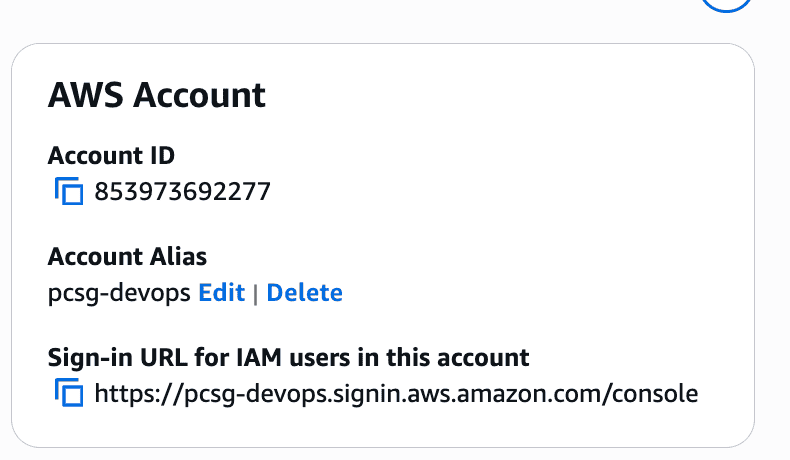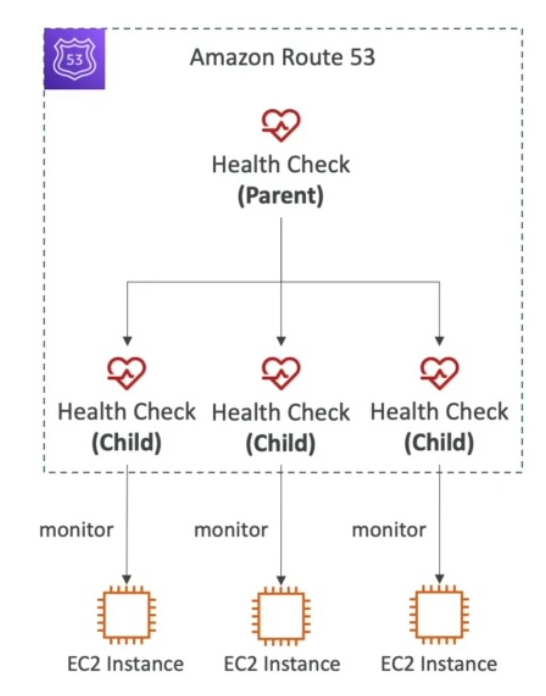https://tutorialsdojo.com/aws-identity-and-access-management-iam/ https://tutorialsdojo.com/service-control-policies-scp-vs-iam-policies/ https://tutorialsdojo.com/comparison-of-aws-services/
- You can customise your URL of sign in, and you CANNOT use single URL for multiple accounts even if the accounts are under Organization

- Only the bucket owner can setup/suspend MFA, but an IAM administrator can suspend versioning alone
- It is recommended to stop ELB access log delivery to s3 before deleting it.
- aws s3 rb —force only works if versioning is disabled
- There is option to enable default encryption of newly created EBS volumes, but config is reactive in nature
- To pass a role (and its permissions) to an AWS service, a user must have permissions to pass the role to the service. iam:passrole, iam:getrole to get the details of role to be passed
- Bucket policy vs Object ACLs.
- ACL - Object writers owns the authority of access of objects
- Enabling ACL disabled Bucket owner enforced
- ACLs - Bucket owner prefered and Object writer[]()
- IAM Access Analyser
- kms - key rotation
- NLB won’t support path based or host based routing as it primarily functions on layer 4, but supports web sockets. But ALBs support host and path routing, websockets support
- AWS backups not reboots instances,
- AWS Backup backs up EC2 instances by snapshotting their EBS volumes (root + attached).
- It also stores instance configuration (like instance type, VPC, security groups), when its done for EC2
- On restore, AWS Backup recreates a new EC2 instance using those snapshots and config.
- But: It does not create an AMI. You won’t see an AMI in your EC2 console. It’s not reusable like an AMI for launching multiple instances.
- To put ELB logs into bucket, the bucket and elb should be in the same region
- Unhealthy targets in weighted routing policy will not get traffic automatically
- Elasticached Memcached not support Multi AZ for HA
- If you want just outbound access via IPv6 or ipv6’s NAT → EGIGW which is for private subnets, you’ll need to have Egress-Only internet gateway, but if you want
- Go to Billing Preferences in the management account and disable RI discount sharing. Then, purchase the RIs using individual member accounts.
- If there’s a REJECT in vpc flow logs, its either sg or nacl issue. if inbound is allowed, but not the outbound, its the nacl issue
- RDS does not support Oracle RAC
health-checks
- Health checks are only for public resources
- Help with automated DNS failover
Possible health checks
- monitor an endpoint
- From 15 different global health checkers ie regions based on 200 response; if 18 percent is healthy then its going to be healthy
- Also can be setup based on text for the first 5120 bytes
- monitor other health checks
 monitor a cloudwatch alarm - Gives you full control
monitor a cloudwatch alarm - Gives you full control
- If you have some resources such as DynamoDB, Ec2 instances configured to have alarm based on its resource utilization, we can configure to monitor the alarm for health check
Private hosted zones
- Cloudwatch metric → cloudwatch → alarm ← Route53 health checker
Configuring health checks
Link to original
- EC2 Recovery is an automated recovery feature for EC2 instances using CloudWatch alarms. It restarts the instance on different hardware without changingYou enable it by setting a CloudWatch alarm for status checks (e.g.,
StatusCheckFailed_System) and set recovery as the action. - You cannot change the iops of an EFS system, you’d need to create a new efs and migrate data to it
Transclude of EFS
fsx
FSx
- Managed File system for third party filesystems, Liks RDS
- FSx Lustre
- FSx Windows file server
- FSx OpenZFS
- FSx NetApp Ontab
FSx for Windows File server
- Supports SMB protocol, and Windows NTFS
- Integration with AD
- Can also be mounted in ec2 instances
- Scale up to 10s of gbps, millions of IOPS and 100s pb of data
- Supports Microsoft’s DFS, group files across mulitple FS
- Data backed up to s3 daily
FSx Lustre
- Used for large scale computing
- Lustre = Linux + Cluster
- Machine Learning, HPC
- Storage
- ssd - Low latency IOPS intensive
- hdd - Thoroughput
- Integrated with s3, read through adn write to s3
Both can be accessed from on prem, s2s, dc
Fsx for NetApp onTap
- Compatible with NFS, SMB, iSCSI protocol
- move from NAS, Ontap to AWS
- Windows, linux, MacOS, worksapces & appstream, VMWare cloud on AWS, Ec2, eks and ecs
- Shirk or grow automatically Point it time cloning, for testing workloads
FSx for OpenZFS
- Managed openZFS
- Only with NFS
- Move workloads to AWS
- Compatible, linux mac windows
FSx for Sysops
Single AZ vs Multi AZ
Link to original- Managed File system for third party filesystems, Liks RDS
- procstat pluging
